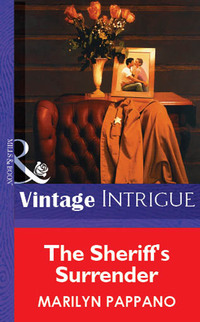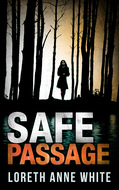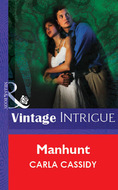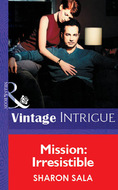Książki nie można pobrać jako pliku, ale można ją czytać w naszej aplikacji lub online na stronie.
Czytaj książkę: «The Sheriff's Surrender»
When he saw her lying there, the first sensation that swept over Reese was relief.
He might resent Neely like hell, might wish she’d disappear from his life and his memory, but he didn’t want her dead, hurt or in danger.
The second sensation was…hard to identify. Something weak. Soft. Damnably foolish…
She looked so fragile. Vulnerable. There was a part of him—the part that remembered loving her—that wanted to close the door and lock them inside this safe place, then gather her into his arms and simply hold her.
Thank God the rest of him knew better than to give in to such weakness.
The Sheriff’s Surrender
Marilyn Pappano
MARILYN PAPPANO
brings impeccable credentials to her writing career—a lifelong habit of gazing out windows, not paying attention in class, daydreaming and spinning tales for her own entertainment. The sale of her first book brought great relief to her family, proving that she wasn’t crazy but was, instead, creative. Since then she’s sold more than forty books to various publishers and even a film production company.
She writes in an office nestled among the oaks that surround her country home. In winter she stays inside with her husband and their four dogs, and in summer she spends her free time mowing the yard that never stops growing and daydreams about grass that never gets taller than two inches.
You can write to her at P.O. Box 643, Sapulpa, OK, 74067-0643.
Contents
Chapter 1
Chapter 2
Chapter 3
Chapter 4
Chapter 5
Chapter 6
Chapter 7
Chapter 8
Chapter 9
Chapter 10
Chapter 11
Chapter 12
Epilogue
Chapter 1
Reese Barnett drove slowly down the main street of Killdeer, Kansas, his gaze sweeping side to side, across empty buildings and lots to empty parking spaces. The town was small, a nowhere place, and unremarkable except for the fact that it lay about halfway between Kansas City and Heartbreak, Oklahoma. Grass grew in cracks in the sidewalks, and the few buildings left standing were unoccupied—a grocery store, a gas station, a café. The place had never been prosperous, and these days, except for a combination gas station-grocery store-post office-restaurant on the edge of town and a handful of sorry houses, it was damn near a ghost town.
It was, according to his cousin Jace, a good place for a meeting.
Reese pulled into a parking lot that filled half the block and found a bit of shade underneath a blackjack oak. He parked facing the street, rolled down the windows, then shut off the engine. He was early for the meeting. Jace had asked him to show up first, to look around and make certain nothing seemed out of place. The only thing out of place was him, furtively scoping out a down-on-its-luck town with a population of maybe twenty, if he counted the stray cats and dogs.
Reaching for the cell phone, he dialed Jace’s number. Jace answered on the third ring, skipped the greeting and went straight to business. “Where are you?”
“Sitting in front of what used to be a grocery store in the heart of what used to be a town.”
“Everything okay?”
“No traffic, no people. Only the critters are out and about.”
“Good. We’ll be there in about ten minutes.”
“I’ll be waiting,” Reese said dryly, then disconnected. He didn’t have much of a clue about what was going on. All he knew was that he’d gotten a call from Jace that morning, asking for his help. Since he was in the help-giving business—his official title was Canyon County Sheriff—and since Barnetts never said no to family if they could help it, he’d taken a day off work. He’d followed Jace’s instructions and left his uniform and badge at home. His black-and-white Blazer, complete with a shield on each door and a light bar on the roof, was parked at his house. He’d driven his own truck, worn jeans and a chambray shirt, boots and a straw Resistol.
Also per Jace’s instructions, his Sig Sauer P-220 .45-caliber pistol was tucked between the seat and the console, his five-shot .38 was holstered at the small of his back, and his department-issue 12-gauge pump shotgun was within easy reach behind the seat. He was ready for damn near anything.
He did know one other detail—the favor Jace was asking of him involved baby-sitting. It would be for just a few days, his cousin had promised. All Reese had to do was keep this witness safe and breathing for a week, no more, while Jace wrapped up the case back in Kansas City, where he was a detective with the K.C. Police Department. Male or female, young, old, honest citizen or cowardly informant—Reese knew none of that. He didn’t even know what crime the person had been a witness to.
But he was about to get a few answers.
The car that turned into the parking lot was a midsize sedan with heavily tinted side and back windows. He recognized Jace behind the wheel, but couldn’t tell anything about the passenger. He stepped out of his truck as Jace parked beside it. Thanks to the window tint and the hat the passenger wore, Reese still couldn’t tell much, although he presumed it was a woman. The hat was too fussy by far for a man.
Jace climbed out of the car and met Reese’s gaze over the roof. Though they were the same age, the only sons of brothers who could have passed for twins, there was no family resemblance at all. Reese looked like their dads—brown hair, brown eyes—while Jace looked more like his Osage mother’s family with black hair, bronzed skin and eyes so dark they seemed black.
“I appreciate your doing this,” Jace said.
“Do I get an explanation, or do you plan to just drop her and run?”
“She’s a lawyer who’s been getting death threats. Last week someone tried to make good on them, so I put her in a safe house that turned out to be not so safe. Last night someone tried again.”
“Which suggests that either your guy is damned lucky…or you’ve got a traitor in the department.”
Jace nodded grimly.
“And no one knows where you’ve taken her now.”
“She doesn’t even have a clue herself. At this moment, only you and I know she’ll be in Heartbreak.”
“She have any bags?”
“Just one.” Jace opened the trunk and lifted out a pricey leather suitcase. “If you have to get in touch with me, call my cell phone and leave a message for me to call, nothing more. And keep an eye on her. So far, she’s been pretty cooperative, but that could change. And keep her safe. I really want to make this case.”
While Jace opened the passenger door, Reese turned and stowed the suitcase in the cargo space at the rear of his truck. He turned back just in time to come face-to-face with the witness as she got out of the car. He stared, and she stared back. Even with the hat shadowing her face, he could see she was stunned—though no more than he.
Neely Madison. Criminal defense lawyer. Former friend. Former lover. And Reese’s worst nightmare.
She looked as incredible as ever—tall, slender, perfect. Underneath the straw hat that sported a giant sunflower, a few strands of silky light brown hair parted across her forehead. Her eyes were brown, too, and too big for her face, giving her an innocent-waif look…but looks were often deceiving. There was nothing innocent or waifish about her. Nothing perfect about her, either.
Clenching his jaw, he pulled the suitcase out and dropped it to the ground with enough force to scuff the expensive leather. He slammed the door hard enough to rock the truck, then headed for the driver’s side.
Before he reached the door, Jace grabbed his arm. “Come on, Reese, you agreed—”
“Only because I didn’t know it was her. And you didn’t tell me because you knew I’d say no.”
“You can’t walk away. Her life is in danger. Someone’s trying to kill her!”
Reese jerked his arm free and faced his cousin. “Good! I wish him luck.”
“You don’t mean that.”
Breathing in short, controlled puffs, Reese stared stonily at Jace. Did he wish Neely was dead? He wished he’d never met her, wished he’d never touched her, never wanted her, never needed her. Hell, he wished she’d never been born…but that was a whole different matter from wishing her dead.
And not wanting her dead was a whole different matter from risking his own life to keep her safe.
Well aware that she could hear him from the other side of the truck, Reese coldly, flatly said, “Don’t bet on it.” Then his anger surged again. “Why in hell didn’t you tell me it was her this morning? It would have saved us all the trip. And why did you think I’d give a damn about keeping her safe? After everything that happened, everything she did—”
“Because I know you.”
“Not well enough. Not if you think I’d agree to this.”
For one long moment after another, they stared at each other. Reese was only faintly aware of a bee buzzing nearby, of the sun’s heat beating down and the sweat that trickled down his spine. He was all too aware of Neely, seen from the corner of his eye, still standing at the sedan’s door, one hand gripping the hot metal, that silly, floppy hat unmoving. He scowled at Jace, who scowled back just as fiercely.
It was Jace who broke the silence. His words were reasonable, his tone aggravated, his expression belligerent. “I asked you for help in protecting a witness, and you agreed. You can’t back out now. It’s not my fault you didn’t ask the pertinent questions. We had an agreement, bubba. Now you have to honor it.”
“I assumed you’d offered the pertinent information.”
“You know what they say about assuming things,” Jace said mildly. Then he sighed and lowered his voice. “You’re right. I figured you’d try to say no if you knew up front that it was Neely. That’s why I didn’t tell you. But I also know you’re professional enough to not let your personal feelings interfere with your job. Regardless of how you feel about her or what happened between you two in the past, she’s the victim of a crime. And you’re a cop, and you’ll do your damnedest to keep her safe.”
Reese shook his head. “Bring me a thief, a hooker or a murderer, and I’ll do what I can. Bring me a real victim, and I’ll do whatever it takes to protect ’em. But not her. She’s not a victim—she turns other people into victims—and damned if I’ll do anything that makes it possible for her to continue destroying lives.”
“Get over it, Reese,” Jace said scornfully. “It was nine years ago, and it wasn’t her fault.”
Nine years. He said it as if it were a lifetime, and in a way, to Reese it felt like one. In other ways, it seemed as if it were just last week. He’d never forgotten the anger, the bitterness, the hurt, the shame. He’d never quite gotten over the loss and the guilt. And it was her fault. If she hadn’t been so stubborn, so convinced that she was right and everyone else was wrong, if she hadn’t been so damned unreasonable…
“If she were living in Canyon County, you’d take her into protective custody without a second thought,” Jace said accusingly.
“But she doesn’t live there. She’s not our problem.”
“She became your problem the moment you said ‘Sure, Jace, I’d be happy to help you out.’” Jace ran his fingers through his hair. “You’ve blamed her for what happened to Judy Miller for nine years. Well, bubba, if I take her back to the city and the next attempt on her life succeeds, you’ll be far more responsible for that than she ever was for Miller. Do you want to live with that on your conscience?”
Reese wanted to shrug, to reply that it made no difference to him. He wanted to climb into his truck, drive away and never give this meeting—or Neely—another thought. He wanted to go back to the moment he’d answered the phone that morning and say “Sorry, Jace, don’t have the manpower, don’t have the budget, can’t help you.”
Well, he couldn’t go back in time, but he could drive away and leave his cousin and Neely standing there. And what if he did? What if Jace took her back to the city and she was killed? He would be responsible, because he could have guaranteed her safety but had refused. It would prove he was no better, no more honorable, than she was.
And he needed to be better than she was.
But to have her back in his life, living temporarily in his house, bringing back all the bad memories and nightmares, making his present as damned impossible as his past…. Did he need anything that badly?
It was an effort to unclench his jaw, to force out words he didn’t want to say. “Only until you find another place for her. Today and tomorrow. That’s all you get. If she’s still here then, she’s going in the Canyon County jail.”
Jace looked as if he wanted to argue, but knew better. Instead he nodded grimly. “I’ll be in touch as soon as I have something set up. Thanks, bubba.”
For a moment Reese simply stared at the hand his cousin offered, then grudgingly shook hands with him, then hugged him. “Today and tomorrow. And don’t think I don’t mean it.” After releasing Jace, he climbed into the truck, started the engine and turned the air conditioner to high. He refused to look as Jace approached Neely, and he rolled up the window so he wouldn’t have to hear their conversation. He couldn’t believe his cousin—his best friend, the closest thing he had to a brother—had put him in this mess, couldn’t believe he’d just agreed to take Neely Madison, of all people, into his home.
He was a better cousin and friend than Jace deserved.
Either that, or a damned fool.
As Jace picked up her suitcase, Neely stared at the dirty plate-glass windows that stretched across the front of the abandoned market. Sale prices were painted across the glass in faded white: Ground Beef, 3 Pounds/$1.00 and Bread, 5 Loaves/$1.00. Obviously the place had been empty a long, long time. In Kansas City, the windows would have been broken out by vandals years ago, the entire building either burned or torn down, but here in tiny Killdeer, not a single rock had been thrown.
At least, not the solid-in-your-hand mineral kind. Reese had gotten in a few good verbal tosses. He’d always been good with words, the sweet, tender kind as well as the cut-her-heart-out-and-leave-her-bleeding sort. This time she couldn’t even blame him. Jace had played a dirty trick on them both, and she was no happier about it than Reese.
She was about to climb into the sedan for the long drive back home when Jace caught her hand. “Whoa, darlin’, wrong vehicle. You’re going with him, remember?”
She looked back at him. “You’re kidding, right?”
“I don’t kid about my job or your life. Reese has agreed to hide you out for a couple of days while I find someplace else for you. C’mon.”
“I don’t want to go with him, Jace. I’d feel safer in Kansas City.”
“Neely—”
“You heard what he said. He doesn’t give a damn whether Forbes kills me. He doesn’t want me here.” She managed to say the words evenly, without any hint of the hurt they caused deep inside. There had been a time when Reese had claimed to love her with all his heart, and she’d believed him with all her heart. But when she’d needed him desperately, he’d turned on her. He’d looked at her, lying in a pool of her own blood, and he’d walked away. And she’d never been the same again—not the same lawyer, the same woman or the same naive, trusting fool.
“You know he didn’t mean that.”
She wished she did, wished she could be certain of that, if nothing else. But she couldn’t convince herself and made no effort to lie to Jace. “Take me to Tulsa or Oklahoma City. There are places I can go, people who will help me, people who wouldn’t rather see me dead.”
“What people? Your sisters? Your mother? Your old friends? Those are the first places Forbes is going to look for you. Do you want to put their lives in danger as well as your own?”
She felt the blood drain from her face. She already had Judy Miller’s death on her conscience. She couldn’t bear to be responsible for one more person’s suffering. At least Reese was a cop. He knew the dangers and was prepared for them.
“I can stay to myself,” she said hopefully. “I can dye my hair, change my name, dress differently, talk differently and take a leisurely tour of all the places I’ve never been. I can keep moving, never spend two nights in the same place, switch identities every time I cross a state line.”
Jace shook his head as he pulled her away from the car and toward Reese’s truck. “It’s too risky. Hell, I don’t even like you standing here in the parking lot this long. C’mon. It’s just for a couple of days. You can endure anything for two days.”
Maybe so. She’d survived the last nine years. But she’d still rather take her chances alone.
Before he could open the pickup door, she wrapped her arms around his neck and hugged him tightly. “In case I don’t see you again, thanks for everything.”
“You’ll see me again. This is just for a few days. We’ll get you someplace safe, make our case against Forbes and put the bastard away again—for good this time. Then you can go back to life as normal.”
She wished she believed him, wished she was that optimistic, but the sick feeling in her stomach suggested otherwise.
He kissed her forehead, then pushed her back and opened the truck door. Swallowing hard, she climbed inside, fastened her seat belt, then raised her hand in a forlorn wave as Reese put the truck in motion.
The temperature inside the vehicle was frigid enough to raise goose bumps on her bare arms, but she suspected it had more to do with the driver than the air-conditioning. She didn’t look at him and couldn’t speak to him—couldn’t do anything but sit stiffly in her seat, head turned to stare out the side window. They left Killdeer soon enough, leaving her nothing to look at but trees, pasture and an occasional house, but that was hands-down better than the hatred she knew she would see if she looked at him.
The miles passed in strained silence, and the muscles in her neck grew taut from holding her unnatural position so long. Gradually, an inch or two at a time, she turned to face forward, then risked the quickest of glances at Reese from the corner of her eye. He was gripping the steering wheel tightly enough to make his knuckles turn white, and his posture was rigid and unyielding. Just like his attitude.
Of course the past nine years that had been so difficult for her hadn’t left a mark on him. He was older, handsomer, tougher. In denim and chambray, with the cream-colored cowboy hat, he looked like every woman’s dream of a gorgeous, sexy cowboy. Put him astride a horse, and hearts would swoon all over the place. Even without the horse, he was more than capable of stirring wicked fantasies.
The first time she’d ever seen him, she’d swooned. He’d just recovered from the shoulder injury that had ended his pitching career with the Kansas City Royals, and had gone to work for the Keegan County Sheriff’s Department. She’d been practicing law in the county seat of Thomasville. She couldn’t have cared less that he was a former hot-shot baseball player. Sports didn’t interest her much. But she’d been damned impressed with the man himself.
Too bad he’d never thought much of her.
Not even when he was claiming to love her.
With a shiver, she adjusted the vents so they blew away from her, then folded her arms across her chest. Feeling incredibly awkward, she locked her gaze on the road ahead and said, “I take it you’re still a cop.”
The silence that met her remark was oppressive. So this was what she had to look forward to for the next two days. Not a problem. She was experienced at being ignored by him—when she’d been shot, when she’d lain alone in the hospital, when she’d been harassed and threatened every single day until finally her tormentors had run her out of town. She could handle a couple of days of not being spoken to.
But as soon as she’d completed the thought, he did speak, in a voice as scornful and unforgiving as any she’d ever heard. “What did Jace tell you?”
“Nothing.” It was an adequate answer that needed no elaboration, but that didn’t stop her from adding it. “If he’d mentioned your name, I wouldn’t have come.”
“If he’d mentioned your name, I wouldn’t have let you.”
Fine. So they were agreed that neither wanted to spend even a moment together. The only problem was that the potential cost to him was merely a few days’ discomfort, while the cost she paid might well be her life.
She returned to staring at the scenery. Jace had refused to tell her where she was going, presumably so he could hide who she was going with. All he’d said was that it was a quiet place where she would be safe.
Safe. With the one person who hated her most providing her only security. Gee, why didn’t she feel safe?
Last night had been far from restful. She tried to doze along the way, but every time she was close to actually falling asleep, something brought her fully alert—some bump in the road, a honk from a passing vehicle, some little bit of fear deep inside her. She gave up her effort as they approached a sign that read Welcome to Heartbreak—Reese’s hometown and, no doubt, their destination.
She smiled thinly. It seemed appropriate that she should wind up in a place whose name described her life so perfectly.
The real, physical Heartbreak didn’t seem a much better place to spend her time than the intangible, emotional heartbreak where she’d spent much of her life. The businesses were on the shabby side, the houses nothing special, the town dusty and worn. They passed one grocery store, two gas stations and three restaurants, one hardware store, one five-and-dime, and a handful of other businesses before Reese turned off the main street into a tree-lined neighborhood.
Maybe the houses weren’t big or fancy, she amended, but some of them, at least, had a certain charm. The trees in these yards were decades old, unlike her own neighborhood where every house had the same variety of very young saplings planted in the same location in the identical handkerchief-size yards. Additionally, there was nothing cookie-cutter about the houses—no identical plans for every fourth or fifth house, no homeowners association decreeing what to plant, when to mow and what colors to paint. There was a sidewalk on either side of the street for skating and playing jacks, front porches attached to every house for watching life pass by and mailboxes ranging from the purely functional to the eccentric to the just plain silly.
They were more like homes than her house could ever be.
After a half dozen blocks, the street ended in a driveway that ran long and straight through a stand of trees to a house some distance back. There were pastures on all four sides, a large yard in need of mowing and a barn out back that looked about a hundred years old with what must surely be its original paint. In contrast, the house gave every appearance of being brand-new. Its log walls, sandstone foundation and brick-red tin roof hadn’t even collected a thorough coating of Oklahoma dust yet.
The garage was on the north end of the house. Reese pulled inside next to a black-and-white Blazer that said Sheriff on the driver’s door beneath the department seal. Was that a general proclamation that all the sheriff’s department vehicles carried, or did it signify that this particular truck belonged to the sheriff? Neely wondered, but she wasn’t about to ask. He’d made it uncomfortably clear that he had no desire to talk to her, and she intended to make it easy for him to ignore her.
The door from the garage opened into a utility room. Straight ahead was the kitchen, and down a short hall to the right was a bedroom. She followed him through the kitchen and dining room and along another short hall to a bedroom diagonally opposite the first.
“You can use this room,” he said brusquely. “Bathroom’s next door.” Then he pivoted and returned the way they’d come.
Neely hesitantly entered the room and set her suitcase on the bed. To say the room was decorated would be overly generous. There were no pictures on the walls, no knickknacks scattered across the furniture, no pretty pillows piled on the bed. At best, it was functional. The walls were pale green, the trim white, the carpet a serviceable hunter-green. There were only blinds, no curtains, at the windows. The furniture was antique oak—a bed, dresser, two night tables and an armoire, probably handed down through generations of the Barnett family.
The only antiques she had were handed down, too—just not from her own family. She doubted that a Madison had existed before her and her sisters who could afford or appreciate such treasures.
She didn’t bother unpacking—why, when she would be leaving the next day?—but went to the bathroom next door, then headed back to the kitchen. She’d had only a doughnut and coffee for breakfast and had missed lunch completely. Though it wasn’t long until dinnertime, she needed something to settle the queasiness in her stomach or she would have one more woe to add to her long list.
Reese was already in the kitchen, washing up at the sink. She stopped abruptly and considered sneaking back to the bedroom, then rejected the idea. She wasn’t going to behave like a prisoner. She’d been willing to go back to Kansas City, or to strike out on her own, but no, they’d brought her here. If Reese hated having her there so much, he could damn well stay in the bedroom and go hungry himself.
Sparing her only the briefest of glances, he dried his hands, then took sandwich makings from the refrigerator. While she washed her own hands, he sliced a tomato, removed bread and chips from one cabinet, plates from another. He made his sandwich, emptied a ton of chips on the plate, then carried both the plate and a cold beer from the refrigerator to the corner table.
Neely made her own sandwich, filled a glass with water from the tap and settled for eating at the counter and staring at the horses in the pasture out back. When she was a kid, she’d wished every night for a horse to talk to, feed treats and ride a time or two. When she’d met Reese, she’d often wished for the chance to see where he’d come from, where he’d been shaped into the man he’d become, and at odd moments in the past nine years, she’d wished desperately, hopelessly, to see him just one more time.
Funny how wishes could come true in ways you most certainly didn’t wish for.
From across the room came the sound of a glass bottle tapping against wood, followed by a hostile question. “What did you do to piss off this guy who’s supposedly trying to kill you?”
Supposedly. Her smile was bitter. Last night someone had fired fifty shots or more into the bedroom where she was sleeping, but Reese had no problem turning the incident into an allegation that might not have even happened. What kind of proof did he need before he could believe her? Seeing her get shot, falling to the ground, bleeding and in great pain? No, wait. Been there, done that…and he’d still walked away. Maybe if she died this time, he would believe her. Maybe then he could forgive her.
Her appetite gone, she dropped the rest of her sandwich onto the plate, then turned to face him. “I did my job,” she said coolly. “A lot of people out there have a problem with attorneys who do what they’re tasked to do under the law.”
“And a lot of people have a problem with attorneys who use the law to let murderers, thieves and other criminals go free.”
It was an old argument, one they’d had a hundred times, one that he’d refused to see from any viewpoint but his own. She wasn’t going to be drawn into it again.
Pushing away from the counter, she walked to the broad doorway that led directly into the living room. It was more rustic than the other rooms, with log-and-stone walls, a big fireplace, wood plank floors and leather furniture. Rough cedar beams laid on the diagonal covered the peaked ceiling, and another beam served as mantel above the fireplace, supporting a collection of pottery. An entertainment system filled the corner on one side of the fireplace, and a computer and desk occupied the other. Great—TV, movies and Internet access. What more did she need?
“Nice house.” Her glance in his direction was too brief to bring him into focus, but just enough to confirm that he was still there. “Small-town life suits you.”
She could actually feel the sharpening of his glare as her mildly offered barb struck home. Small towns, small minds, he used to say about Thomasville. He’d gone there from Kansas City for the same reason she had—to make a start. Influenced by Jace, he’d been looking for an entrée into the law enforcement community. He’d planned to stay a year or two, get some experience, then start moving up into positions of more authority in larger departments.
She’d been fresh from passing the bar and had wanted a place where she could carefully build her practice. She’d had dreams back then of making a name for herself as a defender of the downtrodden, as the woman who would make good on that pledge she’d said every day through thirteen years of public school—and justice for all. Especially for the poor, the minorities, the people without a voice who couldn’t afford hot-shot lawyers to protect them. She’d intended to be one of those rare hot-shot lawyers, with a price that was within everyone’s reach.
She’d failed miserably. Apparently so had he.
She went into the living room, to the leather chair-and-a-half that was obviously Reese’s favorite seat. The remote control and the TV schedule were on the side table, and the shade of the lamp there was tilted slightly to provide better light for reading. After kicking off her shoes, she sat and folded her legs on the seat beside her, turned on the television, then realized with a grimace that she still wore her flower-bedecked straw hat. She pulled it off and tossed it on the matching ottoman, then concentrated on finding something to watch on TV.









